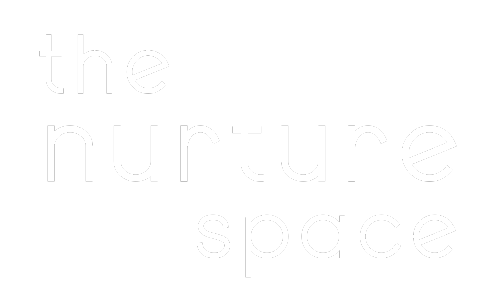The Nurture Space
Adult ADHD: Understanding Its Impacts on Relationships and Daily Life

What is ADHD?
Adult ADHD (Attention Deficit Hyperactivity Disorder) is a neurodevelopmental condition that often persists from childhood into adulthood. While commonly associated with hyperactivity in children, adult ADHD manifests differently in adults, often showing up as inattentiveness, impulsivity, or difficulty with executive functioning.
Symptoms of Adult ADHD
ADHD symptoms in adults can range widely, but common experiences include:
Difficulty focusing or sustaining attention.
Forgetfulness or losing track of tasks.
Impulsivity that disrupts decision-making or relationships.
Emotional dysregulation, leading to frequent mood swings or frustration.
These challenges can strain daily life, impacting personal and professional relationships, self-esteem, and mental health.
Adult ADHD and Childhood Trauma
Many adults with ADHD also have a history of childhood trauma. Traumatic experiences, especially in formative years, can exacerbate ADHD symptoms, creating additional layers of emotional and cognitive challenges.
Childhood trauma can contribute to:
Increased emotional dysregulation
Heightened nervous system dysregulation.
A greater susceptibility to anxiety and depression.
Understanding the connection between trauma and ADHD is essential for effective treatment and recovery.
Attachment Styles and ADHD
Attachment styles—patterns of how individuals form and maintain relationships—are often shaped by early life experiences. Adults with ADHD frequently display insecure attachment styles, often linked to childhood trauma or unmet emotional needs during development.
Common Attachment Styles in Adults with ADHD:
Anxious Attachment: Individuals may fear abandonment and seek constant reassurance. ADHD-related impulsivity and emotional dysregulation can intensify these behaviors.
Avoidant Attachment: Difficulty regulating emotions or focusing may cause avoidance of intimacy or vulnerability, leading to relationship challenges.
Disorganized Attachment: A mix of anxious and avoidant traits, often stemming from unresolved trauma, can lead to unpredictable relationship dynamics.
How Attachment Styles Impact ADHD:
Emotional Dysregulation: Insecure attachment can amplify ADHD symptoms, making emotional regulation even harder.
Relationship Struggles: Attachment insecurities may magnify communication challenges and misunderstandings.
Self-Esteem Issues: Early relational wounds and ADHD-related struggles can contribute to a negative self-image.
Therapy can help individuals recognize and address these patterns, fostering healthier attachment and emotional stability.
How ADHD Impacts Relationships
Adult ADHD often creates unique relational challenges, such as:
Communication Struggles: Impulsivity or inattentiveness can lead to miscommunication or feelings of being unheard.
Emotional Reactivity: Mood swings or frustration may strain emotional connections and trust.
Disrupted Routines: Forgetfulness or difficulty prioritizing can lead to missed commitments, frustrating partners or friends.
These challenges often stem from underlying nervous system dysregulation, highlighting the importance of trauma-informed approaches in therapy.
EMDR and ADHD: Healing Trauma to Support Regulation
Eye Movement Desensitization and Reprocessing (EMDR) is a proven therapeutic approach that helps individuals process unresolved trauma, which can worsen ADHD symptoms. While ADHD is a neurodevelopmental condition, unaddressed trauma often exacerbates challenges like emotional dysregulation and attentional difficulties.
EMDR therapy helps adults with ADHD by:
Reducing Emotional Reactivity: Reprocessing traumatic memories calms the nervous system, decreasing impulsivity and mood swings.
Improving Focus: Healing from trauma can clear mental clutter, making it easier to concentrate and manage daily tasks.
Addressing Shame and Self-Blame: Many individuals with ADHD carry guilt about their struggles. EMDR releases negative self-beliefs tied to past experiences, fostering self-compassion.
Niki Gelekis, Counsellor in Adelaide, integrates EMDR into her practice to support adults with ADHD, particularly those with trauma histories. This approach empowers clients to regain control over their emotional and attentional landscapes.
Nervous System Regulation for ADHD
Nervous system regulation is another key approach for managing ADHD symptoms. It focuses on calming overactive stress responses, a common issue for ADHD and trauma survivors.
Techniques include:
Mindfulness Practices: Tools like deep breathing and grounding exercises anchor attention and calm the mind.
Trauma-Informed Interventions: EMDR, Tapping and other therapies directly address dysregulation caused by unresolved trauma.
Lifestyle Adjustments: Regular exercise, healthy routines, and structured environments help stabilize the nervous system.
How a Counsellor Can Help
As a trauma-informed Counsellor in Adelaide, Niki Gelekis specialises in supporting adults with ADHD.
Therapy sessions focus on:
Identifying and understanding ADHD symptoms.
Exploring the interplay between attachment styles, childhood trauma, and nervous system dysregulation.
Developing personalized strategies to improve relationships, focus, and emotional resilience.
Whether you're navigating ADHD symptoms or their impact on your relationships, seeking professional support can make a significant difference.
Treatment and Support for Adult ADHD
Effective ADHD management often involves a combination of:
Therapeutic Interventions: Cognitive Behavioral Therapy (CBT), EMDR, Somatic Practices and mindfulness techniques can address both ADHD and trauma-related challenges.
Medication: While therapy is foundational, some medications and natural medicine can support focus and emotional balance.
Lifestyle Adjustments: Structured routines, exercise, and balanced nutrition play a vital role in daily stability.
Relationship Counselling: Helps couples and families navigate ADHD-related dynamics together.
Conclusion
Living with Adult ADHD can be challenging, especially when compounded by attachment-related struggles and childhood trauma. However, with the right support, individuals can thrive. Techniques like EMDR, nervous system regulation, and trauma-informed counselling provide practical, effective pathways to personal growth and relational harmony.
If you or someone you know is navigating ADHD and its challenges, contact Niki Gelekis, Counsellor in Adelaide, to explore compassionate and effective support options.
Frequently Asked Questions
1. Can ADHD be diagnosed in adulthood?
Yes, many individuals are diagnosed with ADHD in adulthood, often when symptoms significantly impact daily life or relationships.
2. How do attachment styles affect ADHD?
Insecure attachment styles can exacerbate emotional dysregulation and relational difficulties for adults with ADHD.
3. What therapies work for ADHD?
CBT, EMDR, Somatic Practices and mindfulness-based approaches are effective for managing ADHD symptoms and co-occurring trauma.
4. Can ADHD strain relationships?
Yes, ADHD often impacts communication, emotional connection, and routines, creating challenges in personal relationships, but both individual and relationship therapy can support building healthier relationships.
5. Is medication necessary for managing ADHD?
Medication and complementary medicine can be helpful, but therapy and lifestyle changes are equally critical for long-term management.



